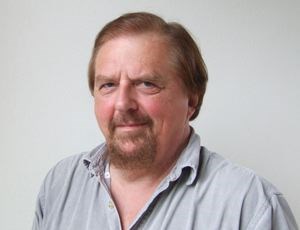The Great War, instead of being the war to end all wars, laid the foundations for 100 years of Canadian involvement in conflict.
Historian and journalist Gwynne Dyer draws these connections in his upcoming Prince George lecture, where he will discuss "What the First World War Taught Us."
"It taught us some good things and bad things," said Dyer, whose free lecture Thursday comes on the heel's of his latest book, Great Power Game 1914-2014, which links Canada's military past to its present-day operations and asks why Canada fights, even when its borders aren't threatened.
On the good side, Dyer said, we learned that wars are a very bad idea. Second, we learned the world needs cooperative international institutions, referring to the League of Nations following the First World War, and the present-day United Nations.
"Canada has always been a strong supporter of that because we paid a price."
More damaging, Dyer said, was the emergence of a concept of morality in warfare, "that it is our duty to go and fight evil anywhere in the world - evil being defined as anybody who our allies think is an enemy."
With so many dead after the First World War - some 66,000 Canadians - those binaries were inevitable, not simply formed through nationalistic memory efforts.
"Propaganda in itself couldn't have taught that. We believed it because we had to believe, because so many people were dying," he said. "It had to be about something big and morally important. It couldn't just be about who's top dog in Europe."
That sentiment, and the memory of the thousands dead, encouraged Canada's choice to enter the Second World War right off the bat, Dyer said. In September 1939, he noted, no one yet knew of the death camps or Hitler's designs on European domination.
"All those reasons we give ourselves weren't actually there," said Dyer, adding he also believes that the choice to punish the Germans after the First World War with the war guilt clause and crippling reparations, made the Second World War inevitable.
The national memory of those wars influences military decisions today, Dyer said.
"We're also doing it still I think, even 100 years later, out of loyalty to 110,000 Canadians who died in the two world wars, all of them at least 3,000 miles from home for causes that had no moral content and frankly weren't worth dying for."
Dyer acknowledges his comments are controversial to some, especially his assertion that Afghanistan was a wasted effort.
"A lot of people are very uncomfortable with that even though they kind of know that nothing was achieved and perhaps the task was kind of irrelevant in the first place," he said. "It wasn't the Afghans who did 9/11; it was a bunch of Arabs who were happened to be living there and who were all gone fairly soon. The Taliban never attacked us."
Though the mythology of morality as cause for war is fading, Dyer said selective memory is still present in how we teach history. For example, he said English curriculums don't acknowledge the 18 Canadians who were gunned down in Quebec in 1918, protesting conscription.
"We are still selling a model of history, which basically says our side good, their side bad and the losses though terrible really basically justify because the world would have been a far worse place."
But Dyer said the changing face of Canada should also shift how the country chooses its conflicts.
"The demographic change is I think in itself transforming our reflexes," Dyer said. "It takes time."
The conversation on why we choose to fight remains relevant, he said, pointing to the six Canadian planes dropping bombs in Northern Iraq and Syria.
"A more futile gesture can hardly be imagined," said Dyer of Canada's involvement. "Even now, there's a huge amount of knee-jerk good guy, bad guy stuff going on in the discourse in the Canadian media on should we send troops."
Dyer said he doesn't care if audiences agree with his explanation for why Canada fights, so long as they ask the question.
"If there was a takeaway in particular, [it's] to talk about or see our reflex of showing up in practically any war our buddies are in as a peculiar reflex that needs a little bit of explanation."
Dyer's free public lecture is on Thursday at 7 p.m. at Canfor Theatre at UNBC.



